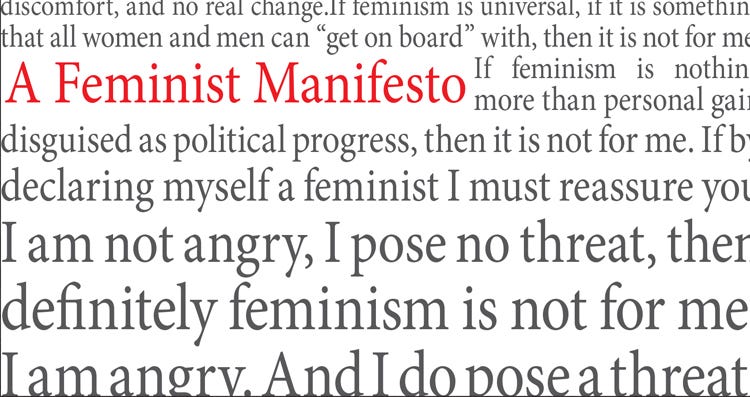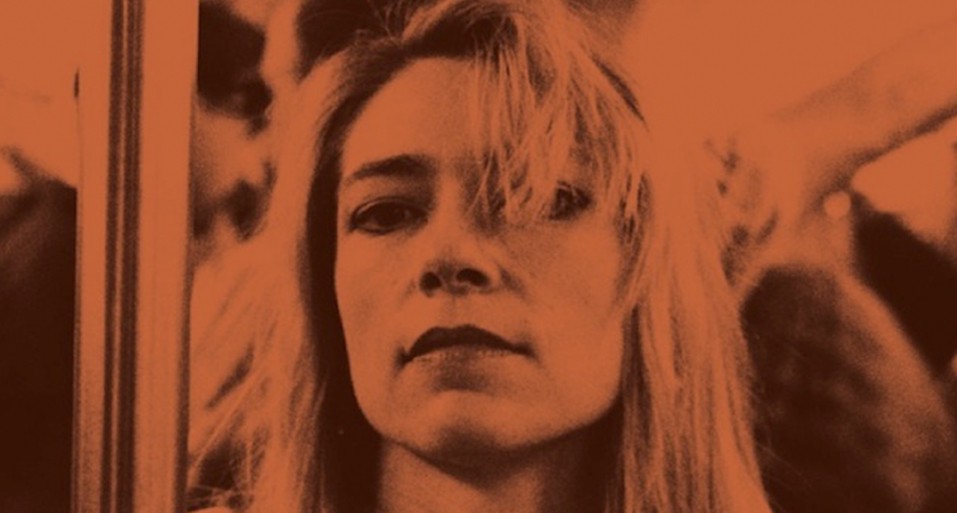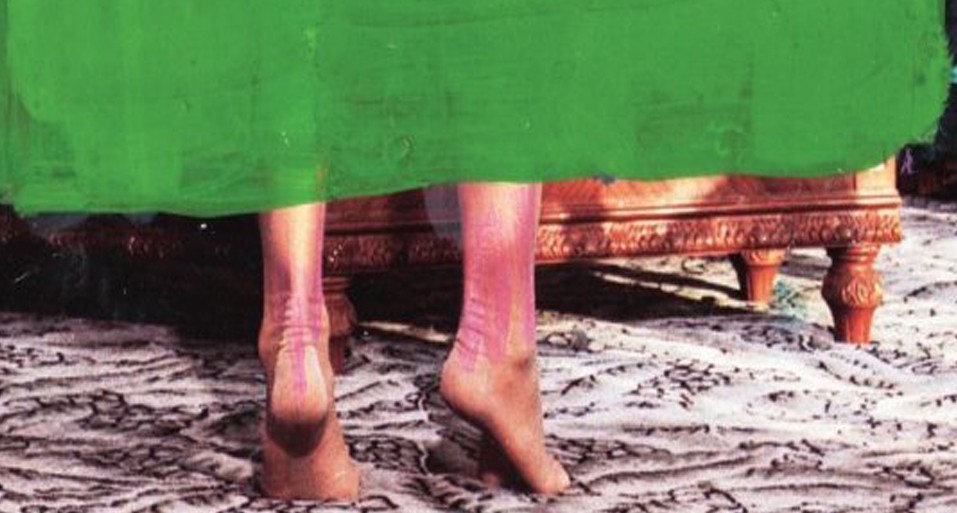Books & Culture
Why Wouldn’t You Be a Feminist?
Jessa Crispin’s feminist manifesto suffers from a lack of specifics

Jessa Crispin has a label problem. It might be an external one, borne of an editor’s decision to title her book Why I Am Not a Feminist: A Feminist Manifesto. But in choosing to use such a title, her book is set up to be a contradiction on two counts. For Crispin is a de facto feminist, and though the complication of her argument allows for an ironic wink (slash marketing ploy) in the title, the slight volume lacks the clarity or call to action of a manifesto. Crispin, a notorious contrarian who founded Bookslut, where many a writer (myself included) got her start, presents a loop of circular logic; while some of the writer’s essays on similar material have been clearer and more forthright, the manifesto suffers for want of a through line.
Crispin’s manifesto first takes aim at the label of feminist, but also directs its ire at those who would disown it. The general tone, in Crispin’s writing of the manifesto, is one of free-floating exasperation at the misinterpretation of the feminist cause and feminist intentions. Crispin is wounded by this perceived confusion, and writes a hearty defense of second-wave feminists like Dworkin and MacKinnon; she offers her strongest critiques when going after capitalism, celebrity, and self-help culture. But much of Why I Am Not a Feminist suffers from a lack of grounding in external references or specific examples of what she’s critiquing. Whereas Crispin’s other work in essays is direct and specific, Feminist offers something less consistent.
In the epigraph to Why I Am Not a Feminist, Crispin quotes E.M. Cioran: “A book should open old wounds, even inflict new ones. A book should be danger.” Crispin is no stranger to embracing risk. She shook the literary world with her 2016 Vulture interview with Boris Kachka, declaring both that she was shuttering Bookslut and that she just didn’t “find American literature interesting.” She said:
“I find MFA culture terrible. Everyone is super-cheerful because they’re trying to sell you something, and I find it really repulsive. There seems to be less and less underground. And what it’s replaced by is this very professional, shiny, happy plastic version of literature.”
But the author worked for decades prior to distinguish herself from mainstream literary culture, celebrating disparate and non-commercial viewpoints with Bookslut, Spolia, and her previously published work. Her editorial influence is distinct: Bookslut celebrated books on the literary fringes: those from indie publishers and small presses, as well as reviews of all stripes. Crispin’s essays on feminist issues took direct aim at both her contemporaries and historical feminist writers. It is significant, then, that Crispin’s manifesto leans heavily on generalizations and not the evidence-based rhetoric of her typical takedown. It could have been much stronger.
Why I Am Not a Feminist relies the most on abstraction where it is the most angry, in its first third. While nothing about Crispin’s anger rings false, the author’s depictions of slights against the feminist cause, of how feminism has been co-opted in order to broaden its appeal, rely heavily on vague pronouns and passive voice without attribution. In the introduction, she says:
Somewhere along the way to female liberation, it was decided that the most effective method was for feminism to become universal. But instead of shaping a world and a philosophy that would become attractive to the masses, a world based on fairness and community and exchange, it was feminism itself that would have to be rebranded and re-marketed for contemporary men and women.
They forgot that for something to be universally accepted, it must become as banal, as non-threatening and ineffective as possible. Hence the pose. People don’t like change, and so feminism must be as close to the status quo — with minor modifications — in order to recruit large numbers.
In other words, it has to become entirely pointless.
Who decided? Who are the “they” and “people?” Why not mention any specific authors or their work? While Crispin is ostensibly outlining a valid point, it’s one she doesn’t come back to with support, and this is support the reader craves. Consider also that she discusses how:
The most prominent feminist writers right now have twisted themselves in knots trying to distance themselves from their predecessors, willfully misrepresenting the work of women like Andrea Dworkin and Catherine MacKinnon and denying any association therewith. Dworkin’s ‘weaponized shame,’ Laurie Penny wrote in a column at New Statesman without explaining how she has come to sum up Dworkin’s belief system as such, ‘has no place in any feminism I subscribe to.’
And yet, Crispin fails to name check any contemporary feminist writers except Penny, and offers no specific critique of how either Penny or these other writers “distance themselves” or “misrepresent the work” of feminists who came before. In a manifesto that positions itself in the title as the contrarian view to the mainstream feminist label, Crispin’s unsupported critique of her contemporaries seems like an oversight, and one that wouldn’t be so glaring if she hadn’t enumerated it in her introduction. Since she mentions the historical influence of Dworkin, MacKinnon, Millett and others, one wonders why she omitted her contemporaries. In contrast to the well-referenced and illuminating work she did in her 2015 essay, “Wounded Women,” at The Boston Review (in response to the #yesallwomen campaign and Leslie Jamison’s work on gendered pain in The Empathy Exams), Crispin’s argument about the current movement evaporates. Is it true that the feminist cause has been sanitized so it can be made palatable to a larger group of people? Perhaps. But Crispin tries to prove it with ire in lieu of evidence.
Why I Am Not a Feminist is at its most thoughtful when it is tackling specific issues. “It’s easier to think about the power you don’t have,” Crispin writes, “than to think about how you are wielding the power you do have.” Her critique of capitalism and how women use money in order to ameliorate the gendered differences in a sexist society are both valuable and illuminating. She writes that once women find themselves in positions of power, they often abandon the feminist ideals they held in order to get there, or abandon thoughts of helping other women. They also often have to adopt typically male roles. “In order to succeed in a patriarchal world,” she writes, “we took on the role of patriarchs ourselves. In order to win in this world, we had to exhibit the characteristics the patriarchal world values and discard what it does not.” Crispin offers a particularly enlightening critique of the publishing industry and the way that white women have come to dominate from the inside. Though previously male ideas of taste were used to keep women out of publishing, those same systems now ostracize and marginalize women of color and people in the LGBTQ community. When Crispin is specific, her words land. She makes it clear that it is easy for the oppressed to become the oppressor, and she calls to women to fight from outside the system so that they don’t adopt the values of a patriarchal society themselves.
Crispin sums up the troubles that plagued the planning of the recent Women’s March (though her manuscript was surely completed prior to the event, it takes on more weight in light of the explosion of protests following the inauguration) and the difficulty the contemporary women’s movement has as it attempts to center its message. She condemns the desire of some feminists to sanitize the ideals of the movement, or to “rescue” women from their own Muslim heritage, in an approximation of the male role of rescuer. But her sharpest words are about what she calls “choice feminism.” “This is the belief,” she says
[T]hat no matter what a woman chooses… she is making a feminist choice, just from the act of choosing anything […] So simply by choosing anything at all, you are bucking the patriarchy and acting like a feminist […] No debate, no consideration, no discomfort required.
Crispin calls repeatedly for radical, fringe-based feminism. She argues against feminism in its homogenized form. She calls for women to gather at the edges of society in order to form new systems that are no longer based on patriarchal ideals.
What is troubling about Crispin’s arguments is that they can resemble the same logic she critiques. Though she ends her book by saying, “You are not doing feminism wrong,” her manifesto argues against that idea. She criticizes the online feminist community for not allowing nuance, for disallowing debate and a “space for writers to work out complicated ideas in public,” but she narrowly defines parameters by which a woman may call herself a feminist. Labeling continues to be a problem, and since Crispin doesn’t offer a cogent alternative to the feminist label, she is stuck debating against what the label can represent.
Crispin is right; there are those who would take up the feminist moniker — or any label of any cause, really — and use it without thought or without the proper research. But it’s impossible to arbitrate thoughtfulness, and at times Crispin does. As the author circles into the very thing she critiques, it becomes clear that the problem is the messiness of people; the democratization of anger is imperfect because people are imperfect. Crispin vacillates between allowing people their imperfection and demanding that feminists exhibit a higher standard. If, perhaps, she offered a way forward or a more cohesive outline for the future, this wouldn’t matter so much.

“We must lay claim to the culture,” Crispin writes, “occupy it.” She argues for feminism that wounds. Feminism that doesn’t devalue men, but also doesn’t ask for male validation. Crispin argues for the establishment of new systems that are independent of the old systems that were built upon patriarchal and sexist ideals. The problem is that she doesn’t offer much in the way of a specific call to action. How might this be accomplished?
Where do Crispin’s words fall in line with other feminist writers who she perceives as misinterpreting the historical feminist cause and the ideals of the feminist movement as it moves forward from here? These questions would be easier to answer if Why I Am Not a Feminist was more specific in its debate, more grounded in reference to what Crispin rages against. She is not manifestly clear.









